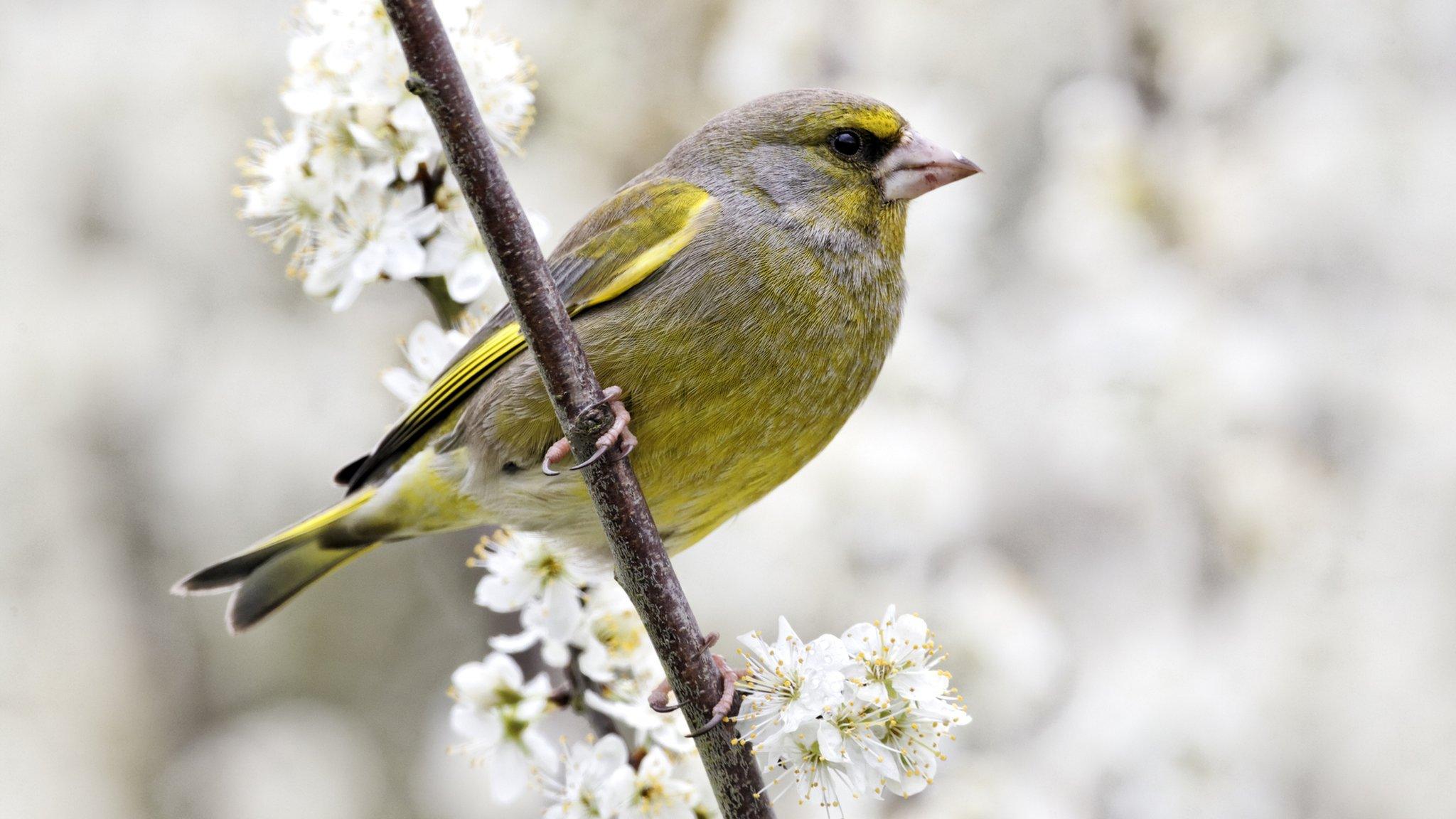Farne Island off Northumberland reopens after two years
- Published
- comments
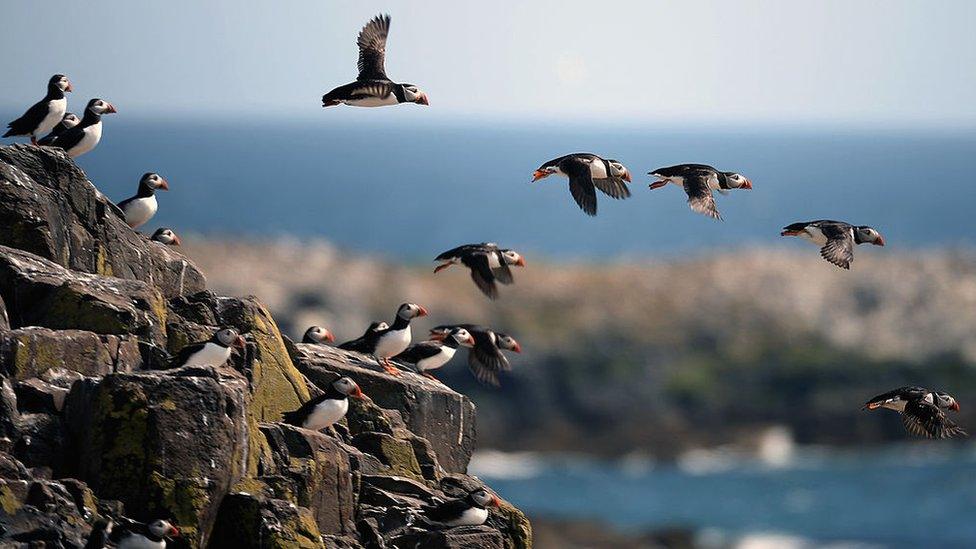
Around 200,000 seabirds call the islands home.
An island off the coast of Northumberland famous its birds has reopened to visitors after being closed for two years.
Inner Farne is one of the Farne Islands - a nature reserve that's home to around 200,000 seabirds.
The reserve closed in July 2022, to protect bird species, after an outbreak of bird-flu.
Conservationists say the disease is now impacting fewer birds, so boat tours are beginning to return, taking visitors back to the popular nature destination.
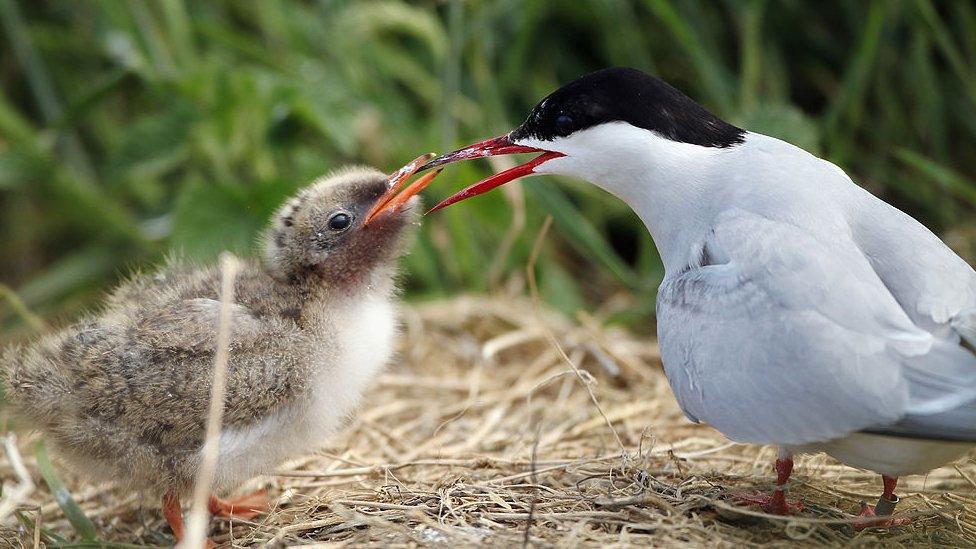
An Arctic Tern with its chick.
What birds call the Farne Islands home?
The islands are home to puffins, Arctic terns, and kittiwakes.
The birds return to the islands to breed each year from the end of March. They then leave the islands once their chicks are fully grown, at the end of the summer.
The colony on Inner Farne was hit by bird flu in 2022, with more than 6,000 birds affected.
At the moment only Inner Farne has reopened to visitors as a trial. This is because the people who look after the islands, called rangers, are keeping an eye on bird flu numbers.

Visitors enjoy seeing the wildlife.
What is bird flu?
Bird flu is an infectious disease that has existed for more than 100 years. It usually begins to affect birds in autumn before fading away in spring and summer.
The virus can spread through entire flocks within days, through droppings and saliva, or through food and water.
Although the disease was also present last year, there was a big reduction in the number of birds affected. This has given conservationists hope that the colony will continue to recover and is becoming more resistant.
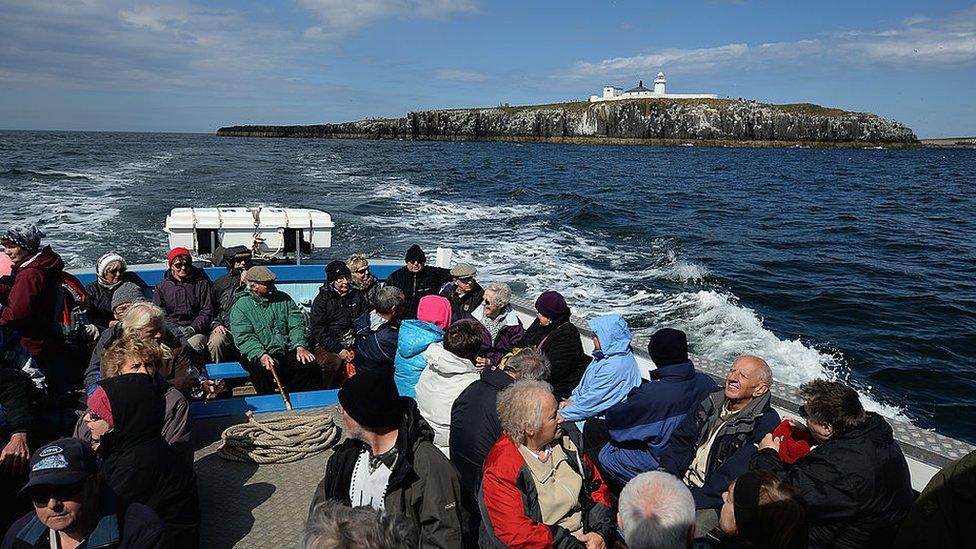
People need to get a boat to visit the island.
Sophia Jackson, Area Ranger for the National Trust says: "We have been closely monitoring the impact of the disease on our breeding populations as part of international research into bird flu.
"This has shown that the disease has had devastating impacts on some species and at some UK sites making our conservation efforts all the more important."
- Published29 September 2023
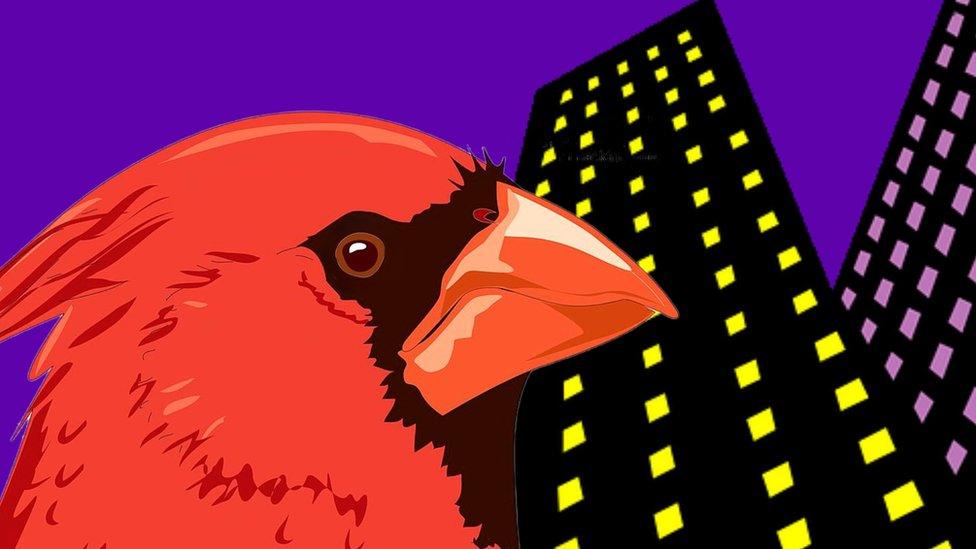
- Published13 November 2022
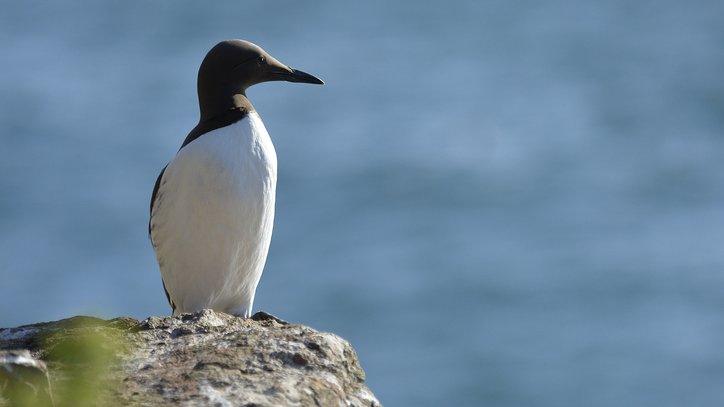
- Published1 December 2021
